Chung-Ang University SS21 Tobias W.
I spent my semester abroad at Chung-Ang University (CAU) in Seoul. The beginning of my journey to Seoul started in Essen via the university-internal organization IS:link, which established the contact to the CAU in South Korea.
Preparation
For studying in Seoul, you need a student visa, which you can get for free as a student from Germany. You need the following documents: passport, passport photo, declaration of the bank regarding financial security, Confirmation of Visa Issuance (document is provided by CAU). With these documents, the application at the Korean Embassy is quickly completed. However, due to the Corona pandemic, the issuance process was a little different than usual. I received my visa notification online and showed it in Korea upon entry.
Quite early the CAU sends a list of courses, some of which you have to choose for your learning agreement. Talk to the UDE about which courses you can choose so that all of them will be credited at the end. At CAU I took the following courses: Behavioral Finance, Introduction To International Development, and Elementary Korean Language.
Even before you fly to Seoul, you should already know if you want to live in the university's own dormitory on campus. CAU will send you a message with which you can apply online for a place in the dormitory (first-come-first-served basis). I can only recommend living in the dormitory, as there are many exchange students and Koreans living there. However, one requirement is that you take a tuberculosis test, the result of which you send to CAU. The costs for this are not covered by the health insurance and amount to about 75€.
In general, CAU sends regular emails about the semester process and upcoming steps. It also sends a guide where you can already get a lot of useful information about campus life and Korea.
If you want to live in Korea as an exchange student, you will definitely need travel health insurance. I took out mine quite cheaply with HanseMerkur, who also confirmed that all costs incurred through Covid-19 would be covered. The last step before the trip is a negative PCR test, the result of which you have to show before departure. With your visa and PCR test result in hand, you will then depart for Seoul.
Arrival and quarantine
Arriving in South Korea is definitely different from my previous trips to other countries. Due to the Corona pandemic, we had to go through many checkpoints where we were told about the upcoming quarantine. In South Korea, there is a 14-day quarantine requirement for people entering the country, which can be spent either in a government-provided facility or in a residence of one's own choosing (e.g. Airbnb, dorm). After we officially entered South Korea, we were driven by a quarantine cab to a testing center where a PCR test was performed again. You have to download an app on your smartphone where you have to enter your measured temperature and any symptoms every day. The app also monitors whether you leave your residence. Finally, we were driven to the dormitory for quarantine. CAU provided food and water three times a day. After 14 days, a final PCR test became necessary. The negative test result was also the start of my semester abroad.
Course selection and time commitment
At the beginning of the exchange semester, you choose your courses online. There are deadlines to keep in mind, as course placement is on a first-come-first-served basis. When you enroll at CAU, you will be assigned to a department. In my case, this was the Chung-Ang Business School. This places restrictions on your course selection, so you generally can't choose courses outside of your major. My courses were conducted online due to the pandemic. Depending on the course, they are either zoom meetings or recorded lectures with assignments. The courses are offered in English and are usually held once or twice a week. The workload is highly dependent on the individual professor. It is worthwhile to read through the syllabi of the courses before choosing a course, as the expected scope is also indicated there. In general, I can say that I had a good balance of workload in my courses. The professors are very helpful and take time for students' questions. The communication is at eye level, which is very pleasant. The teaching is realized via a learning platform where you can easily find everything in one place. There are two examination phases at CAU: the midterm exam and the final exam. I had a total of two exams, one presentation, and two oral exams. You could prepare for everything very well because the professors communicated quite transparently what the requirements were.
Studying and living on campus
Campus life in South Korea is different from that in Germany. CAU is located on the south side of the Han River, the river that flows through Seoul. There are numerous stores and services on campus, such as several convenience stores, cafes, restaurants, stationery stores, a McDonalds, a bank, a hairdresser, and others. The campus itself was impressive. Located on a mountain, with a variety of modern buildings, it is very authentic and at the same time cheap to live there in the dorms. There are two buildings that are connected to each other. The dorm is separated by gender. One room is divided into two identical halves with a bed and a desk, a shelf, and storage space. There is also a large closet and a bathroom with a separate shower and toilet. Normally, two students occupy one room. During the pandemic, however, I had the room to myself. Each floor in the dorm has a common room with a refrigerator, water maker, microwave, ironing board and iron. The total price for staying in the dorm was about 1250€ for 4 months. You can't live cheaper in Seoul under these circumstances, and I can recommend everyone to live there for the duration of the semester abroad.
There are two dining halls on campus where you can get a meal with side dishes every day for 2-4€. The food there is okay, but I would recommend exploring the neighborhood in Heukseok, because here you can find good and affordable restaurants starting at 5€ per meal. Water is always free. In Korea, people rarely cook at home. People mainly meet with friends or colleagues in restaurants and eat together. Also, Korean dishes are often served in the middle of the table, so everyone shares the dish. My favorite Korean dishes are: Jjimdak (찜닭), Tteokbokki (떡볶이), Korean BBQ, Gimbap (김밥). You can also find western food in Korea like pizza, pasta, or burgers. However, this is usually more expensive than Korean food.
CAU provides every student with a contact person (Global Ambassador, GLAM) who you can ask anything. This was very helpful especially in the beginning when the Korean authorities needed a contact. Since you usually don't have a Korean number when you enter the country and you have to provide a contact, my GLAM was able to help me a lot.
Everyday life in Seoul
Everyday necessities can be bought very well either in the convenience store integrated in the dormitory, or in nearby markets and drugstores. You can find such convenience stores on every corner, selling everything you need. For fruits and vegetables, I would recommend the local market, and it can also often be worthwhile to go to Korean supermarkets that are not part of a large chain. From CAU, it's not far to Gangnam, a trendy, slightly more expensive neighborhood. Notable neighborhoods for students are Hongdae (bars, clubs, arcade), Yeonnam (great restaurants, cafes, bars), and Itaewon (international). Overall, I found Seoul to be a dynamic and vibrant metropolis.
In South Korea, the currency is the Korean won. Roughly speaking, 1000 won is equivalent to 0.75 euros. Before you travel to South Korea, you should definitely get a credit card in Germany and make sure that your bank does not charge any foreign currency fees when paying or withdrawing money from ATMs, otherwise you will have to pay fees on every transaction. I used Revolut, for example, which I linked to my German bank account, and had no significant problems in Korea. However, it can be an advantage to have a second credit card with you in case the first one happens to not work, because that does happen.
For everyday things you definitely need a Korean cell phone number. You will often have to give this number in various situations. Near campus there is a Chingu Mobile store (친구통신) where you can get a Korean SIM card for about 12€ per month with unlimited data and free calls/SMS. It makes more sense to get a Korean number in South Korea as the offers are better than in Germany.
If you are moving around Seoul by bus & train, you will need a Tmoney card. This is a reloadable card that you can buy anywhere. You use it before you get on the subway, as well as on buses when you get on and off. Public transportation in Seoul is very cheap: one ride costs about 1 euro. If you're traveling in pairs or with several people, taking a cab is a cheap alternative! If you want to rent a car in South Korea and don't have an international driver's license, you can upgrade your German driver's license with a Korean one.
At the beginning of your stay in South Korea, you are not yet fully recognized by the government. A few weeks to months after your arrival, you will receive your Alien Registration Card (ARC), an identity card that recognizes you as an alien living in Korea and allows you to enjoy several privileges, such as opening a Korean bank account. A Korean bank account makes it easier for you to order online, for example. However, it took two months until I received my ARC due to the organization of the university.
Throughout South Korea, older people often only know basic English or phrases. However, it often happens that they do not speak English at all. It therefore makes sense to learn some Korean in advance. The CAU also offers language courses, but it doesn't hurt to learn Korean characters at least in Germany.
In Korea, I used a few apps that made everyday life easier. I use KakaoTalk for communication, Naver Map and KakaoMetro for public transportation, and Papago and NaverDict for translation. These apps help enormously to find my way around!
Conclusion
I really enjoyed my stay in Seoul. It was a great time where I met new friends and learned a lot about myself. I will remember South Korea as a country that is very welcoming and interested. Even if you don't always understand the locals, as they often speak no or rudimentary English, they are warm and helpful. Living in a country whose language you don't speak is a special situation. However, I quickly felt at home in South Korea. I perceive the country as having similarities and parallels to Germany. I don't think you suffer culture shock in South Korea, as long as you are open and get involved in new situations. I am also very grateful to my Korean friends for the help they have given me. I know that I met great people in South Korea who will be with me.
Studying and campus life at CAU was a unique experience for me. Experiencing the contrast with German university culture is something I perceive as enriching. I consider myself lucky that IS:Link established contact with universities in Korea so that I could fully enjoy the last part of my Master's studies in South Korea.
Tobias W.
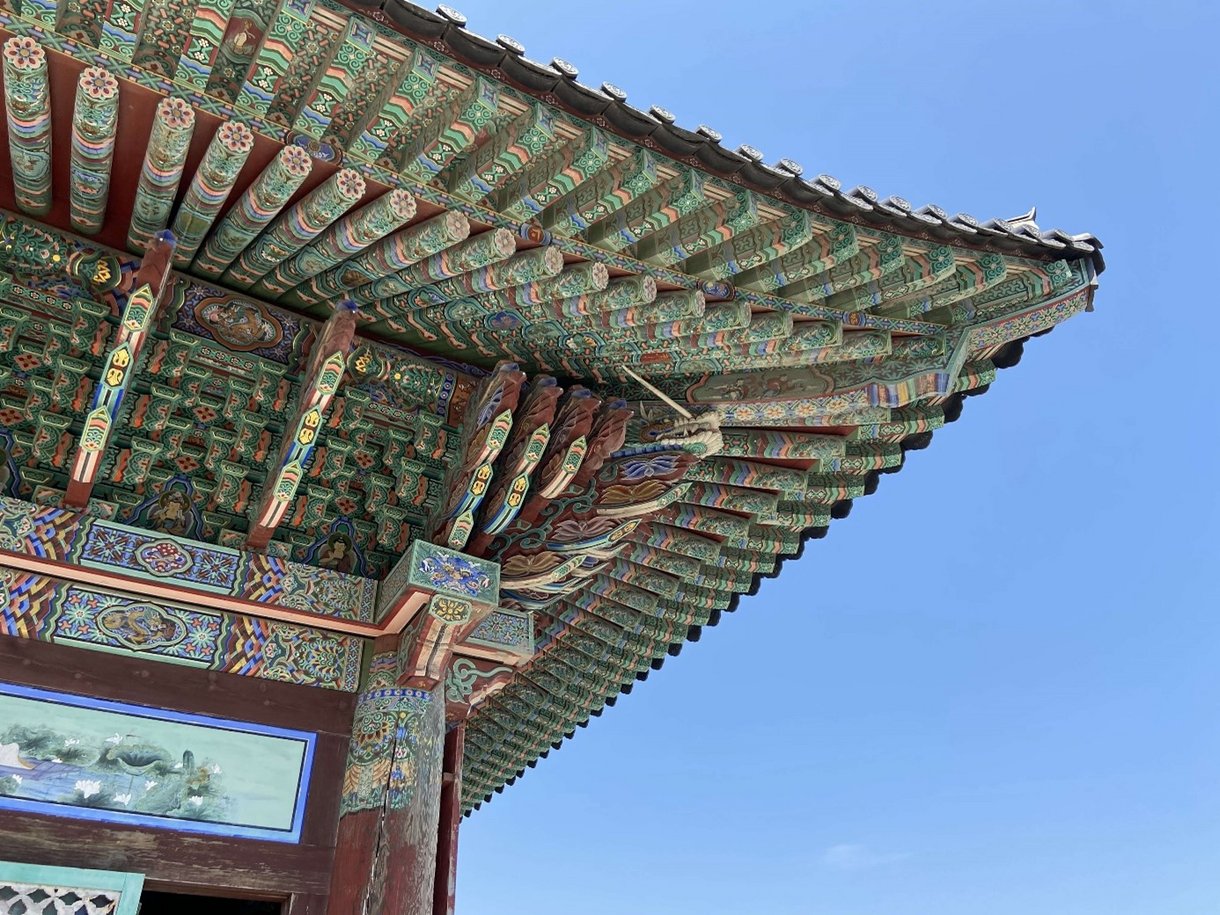
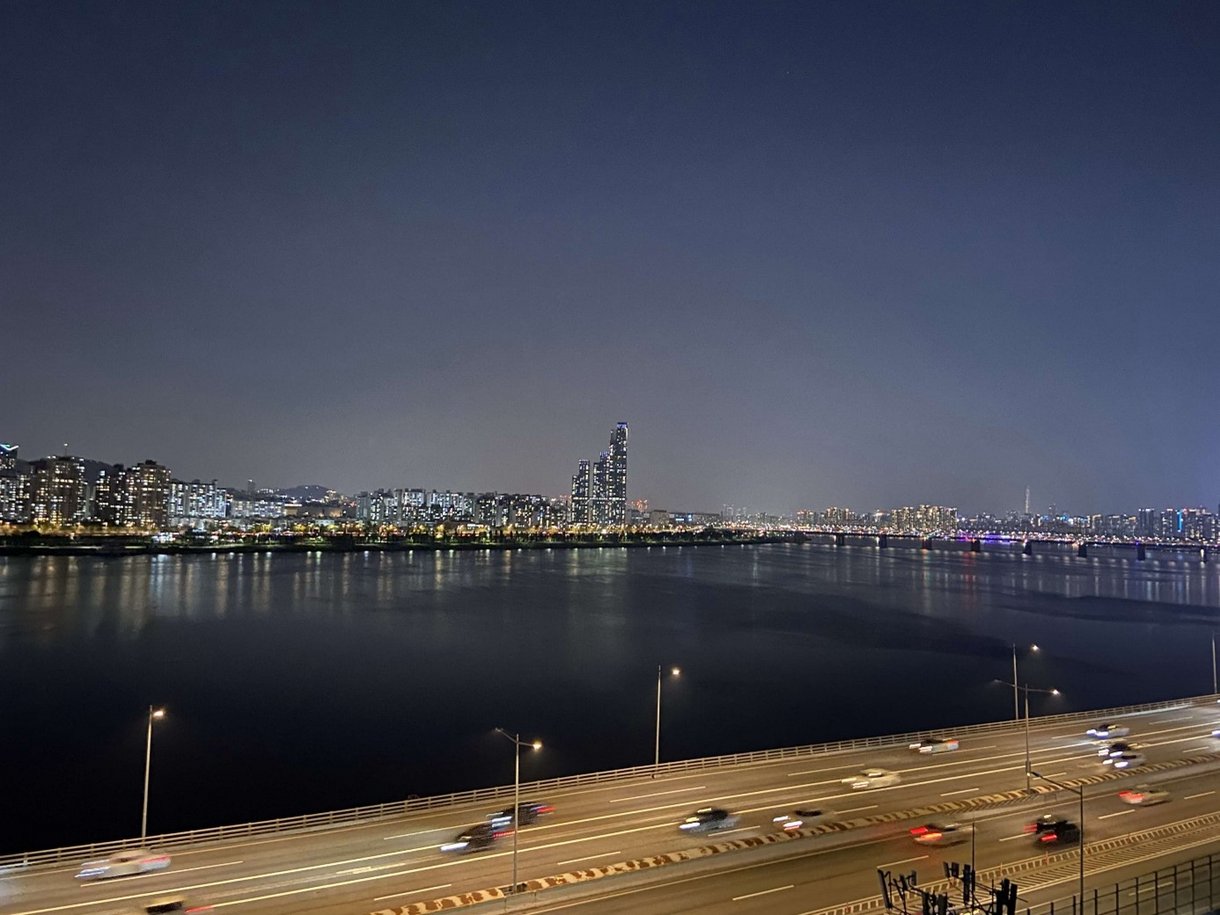
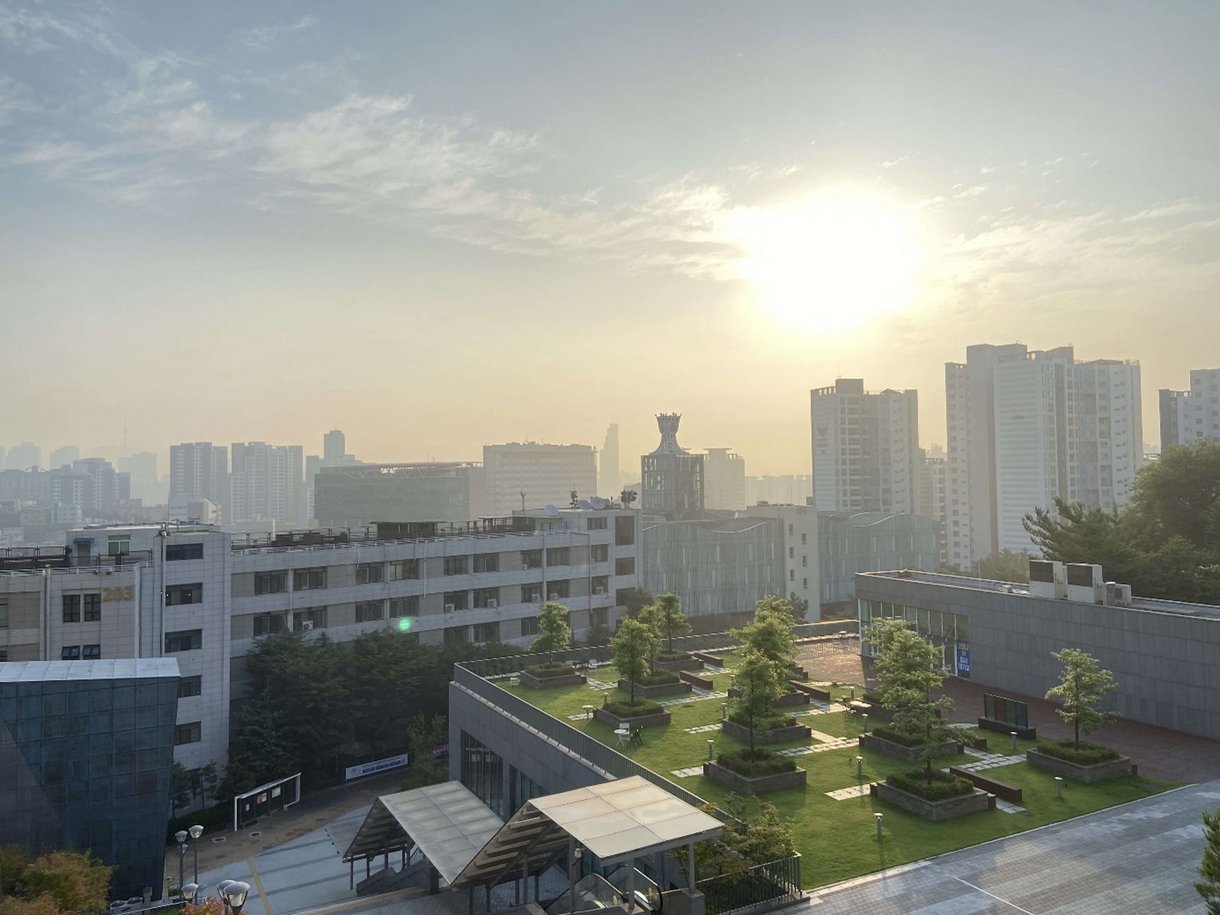
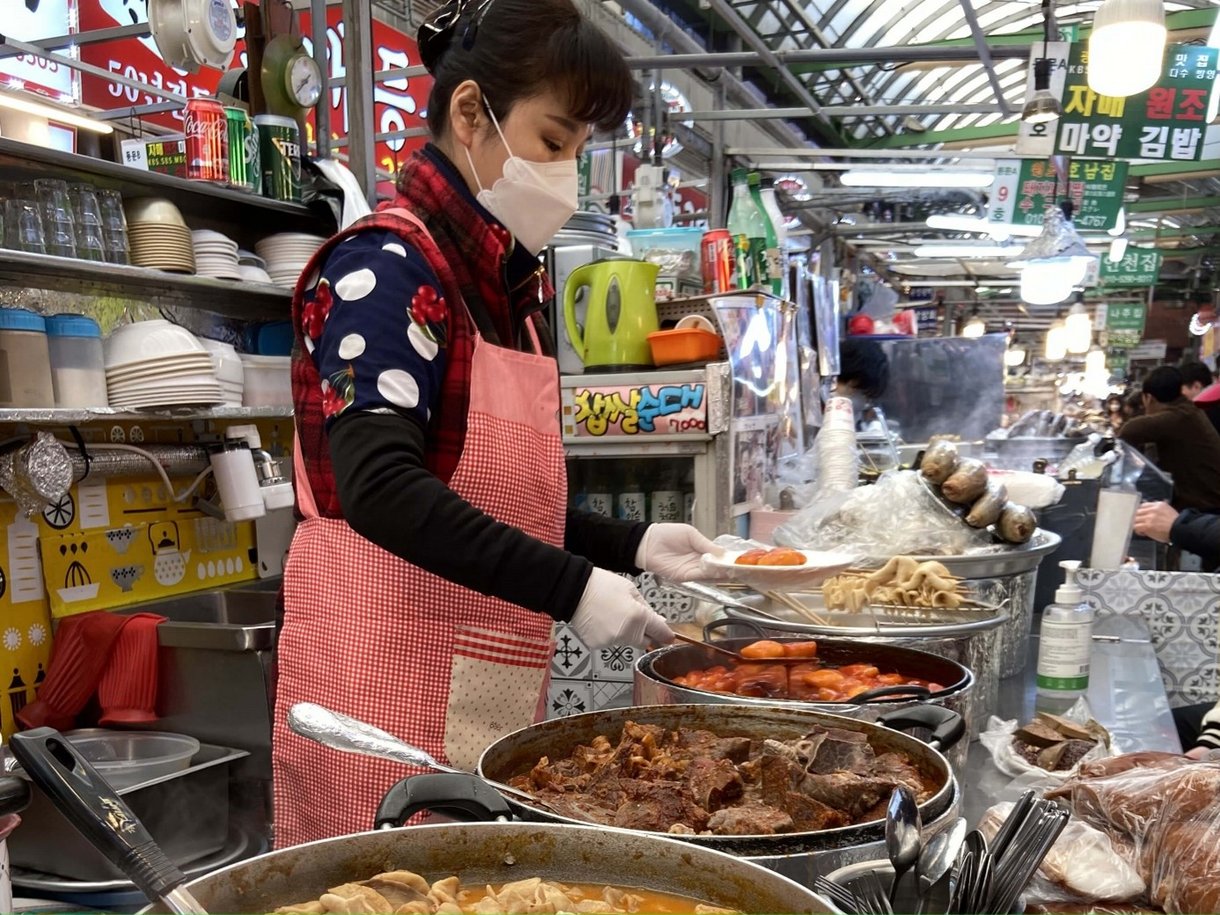
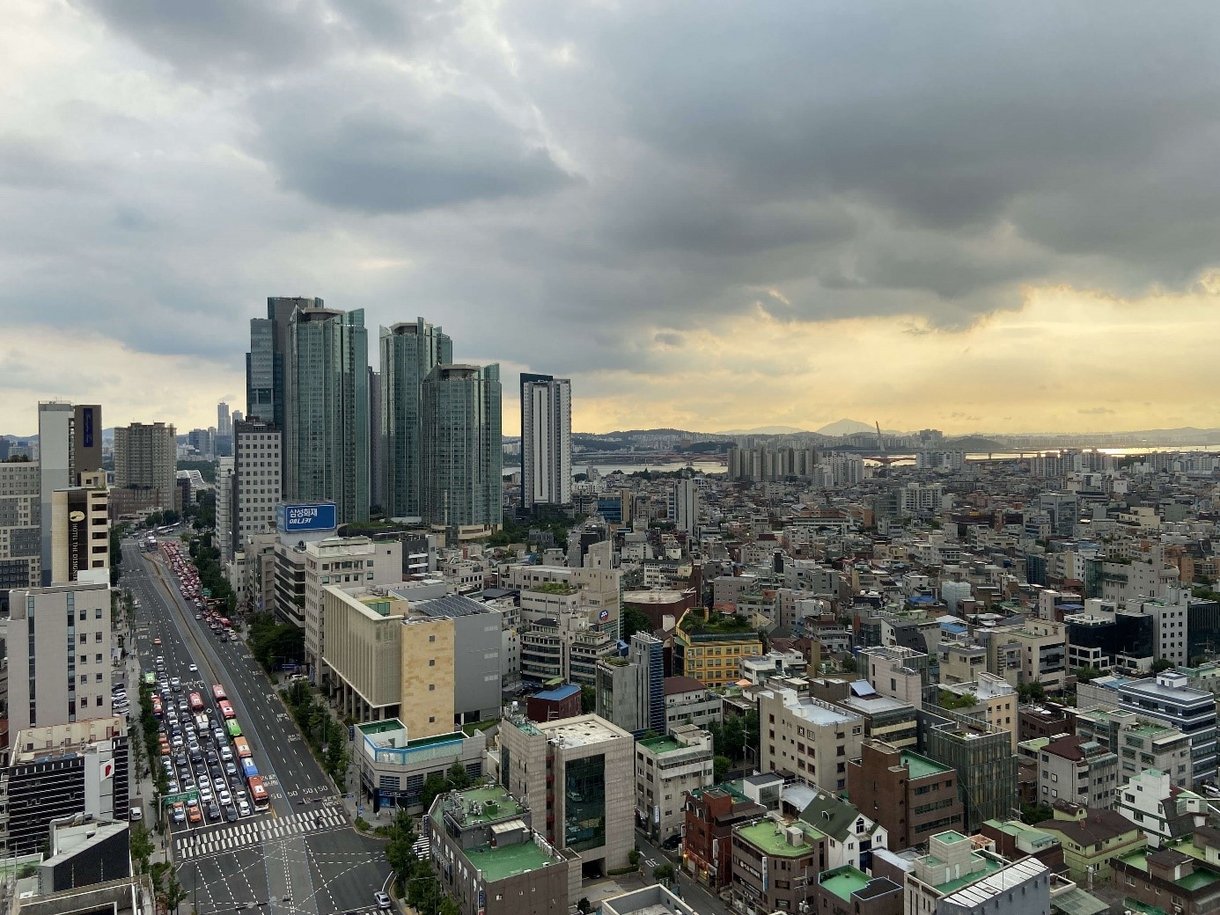
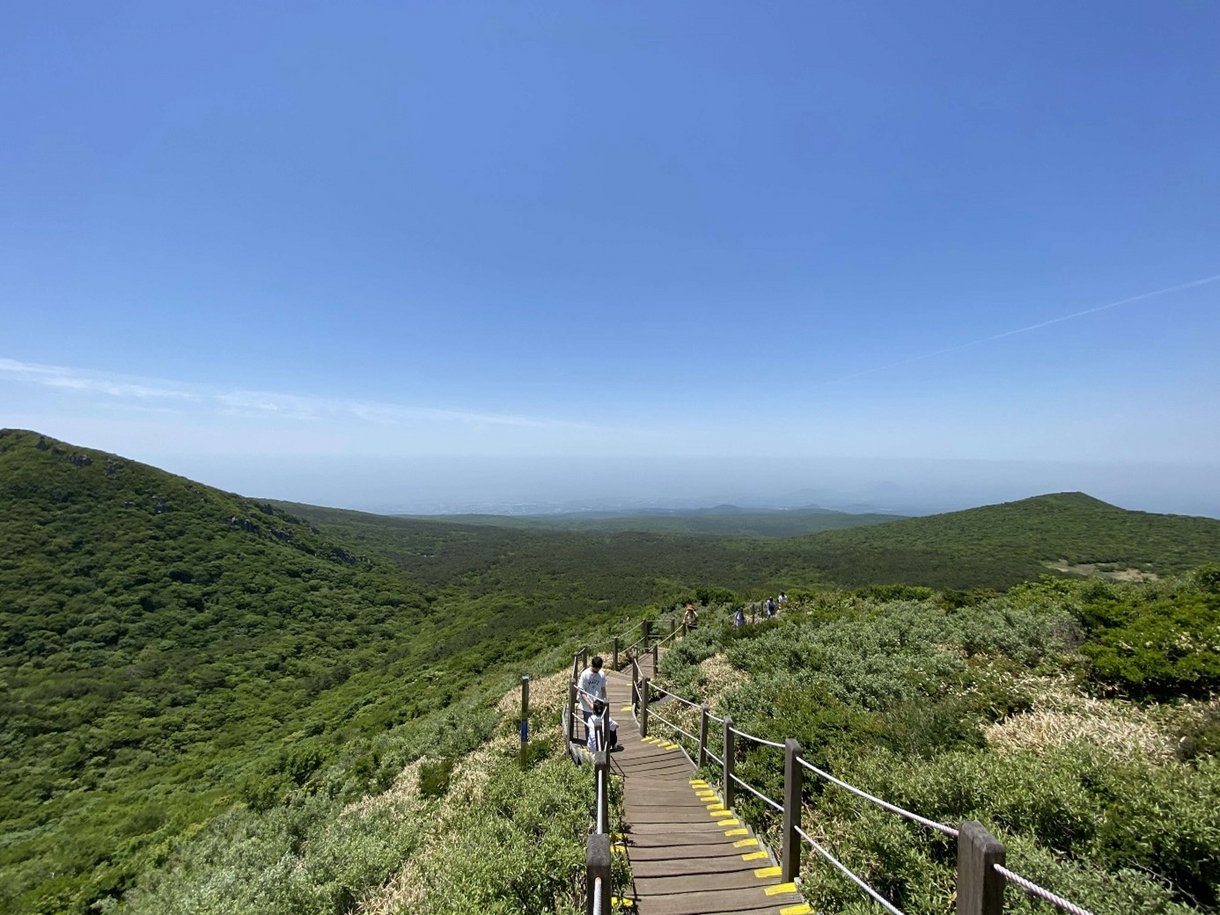

![[Translate to English:] [Translate to English:]](/fileadmin/fileupload/PRO-ISLINK/postApril_ISlink_Logo_IS_Student_Exchange_Network.png)